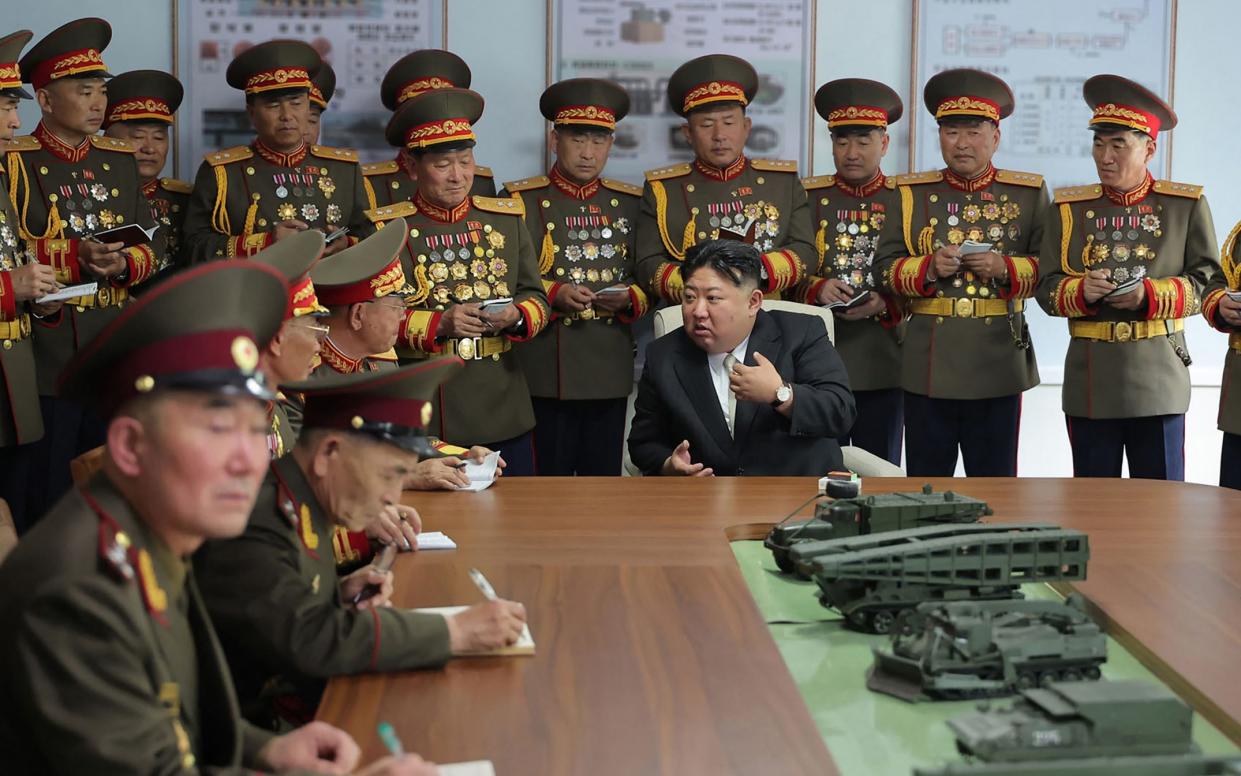North Korea plotting attacks on South Korean embassies, spy agency warns

North Korea is plotting “terrorist” attacks targeting South Korean officials and citizens abroad, Seoul’s spy agency has warned.
The National Intelligence Service (NIS) said it had recently “detected numerous signs that North Korea is preparing for terrorist attacks against our embassy staff or citizens in various countries, [such as] China, Southeast Asia, and the Middle East”.
“North Korea has dispatched agents to these countries to expand surveillance of the South Korean embassies and is also engaging in specific activities such as searching for South Korean citizens as potential terrorist targets,” the spy agency said.
The NIS said the increased threat appeared to be linked to a wave of defections by elite North Koreans who were trapped overseas during the pandemic and are now avoiding returning home after Pyongyang eased strict border controls, having become “sceptical” of the regime.
Pyongyang treats defections as a serious crime and is believed to hand harsh punishments to transgressors, their families, and even people tangentially linked to the incident.
North Korean embassy officials may be submitting false reports blaming “external” factors for voluntary defections by their colleagues, in a bid to evade punishment, the NIS said.
As a result, the North may be “plotting retaliation” against South Korean embassy staff on such pretences, the NIS added.
South Korea’s foreign ministry said on Thursday it had raised its anti-terrorism alert status for five of its diplomatic missions – embassies in Cambodia, Laos, Vietnam as well as its consulates in the Russian port city of Vladivostok and the Chinese city of Shenyang.
Seoul and Pyongyang have embassies or consulates in all five locations.
Defections hit record high since 2017
According to Seoul’s unification ministry, 196 North Korean defectors arrived in the South last year, with around 10 of them being from Pyongyang’s elite class, such as diplomats and possibly their children.
This marked the highest number of defections by North Korean elites to the South since 2017, according to Seoul.
“The end of the pandemic has enabled North Korean agents, previously confined within their country, to travel abroad for missions, while South Koreans are also travelling abroad without any restrictions,” Lee Man-jong, the president of the Korean Association for Terrorism Studies, told AFP.
“Pyongyang appears to be targeting South Korean assets and nationals located in foreign countries with which they have established strong diplomatic ties.”
Experts say the extended overseas stay during the pandemic has led North Korean expatriates to increasingly doubt their country’s isolated regime.
“While living abroad, these North Koreans were able to send their children to normal schools, avoiding propaganda education and the constant need to be obedient to the regime,” said Ahn Chan-il, a defector-turned-researcher who runs the World Institute for North Korea Studies.
Pyongyang is suspected of being behind the 1996 killing of a South Korean consul in Vladivostok, who was attacked and killed by an unidentified assailant.
The consul, also an intelligence agent, had been monitoring Pyongyang’s illicit activities, including drug trafficking and the production of counterfeit banknotes, according to South Korean reports.

